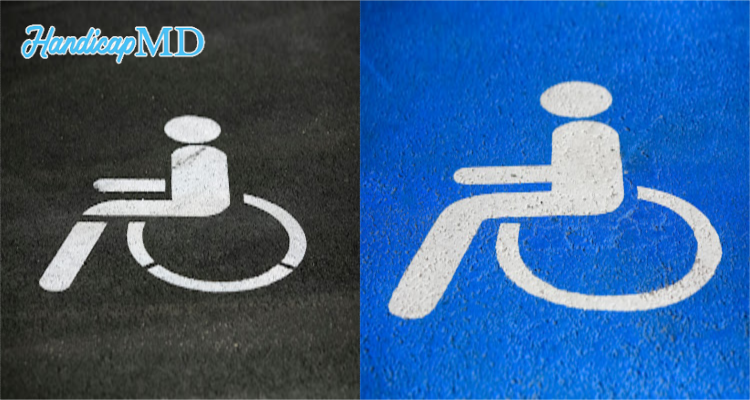
Myths vs. Facts: Debunking Common Misconceptions about Handicap Placards in Alaska
Introduction
Navigating the world of handicap placards in Alaska can be confusing due to the abundance of myths and misinformation. To shed light on this topic, we're here to debunk the most common misconceptions, providing accurate information that will help you better understand the regulations, benefits, and eligibility criteria associated with permits. Let's separate myths from facts and ensure you have the right knowledge when it comes to disability permits in AK.
Myths vs. Facts: Debunking Common Misconceptions about Handicap Placards in Alaska
Myth: Anyone Can Obtain a Handicap Placard Easily
Contrary to popular belief, obtaining a handicap permit in Alaska isn't as simple as walking into a DMV office and requesting one. The process involves medical evaluation and certification from a licensed healthcare professional. The Alaska Department of Motor Vehicles (DMV) ensures that only individuals with legitimate disabilities receive these permits. This system maintains the integrity of handicap parking spaces and supports those who genuinely require them.
Myth: Handicap Placards are Only for Wheelchair Users
One prevalent misconception is that disability permits are exclusively for individuals who use wheelchairs. In reality, these permits are intended for a broader range of disabilities. People with mobility impairments, respiratory conditions, heart conditions, and other disabilities that limit their ability to walk longer distances also qualify for disability permits. It's essential to recognize that disabilities come in various forms, and the permits aim to provide equal access to everyone.
Fact: Handicap Placard Abuse is a Serious Offense
Some individuals falsely believe that borrowing or using someone else's permit temporarily is harmless. However, this constitutes abuse and is a violation of the law. Disability permits are issued for specific individuals and are non-transferable. The misuse of these permits undermines the purpose of providing accessible parking to those who genuinely need it. Offenders can face hefty fines and penalties for such actions.
Myth: Handicap Placards are Valid Forever
While it might seem convenient to have a permanent permit, it's essential to understand that disability permits have expiration dates. In AK, these permits are typically valid for up to five years. This expiration ensures that individuals periodically reassess their medical condition and disability status. Renewal processes help maintain the accuracy and integrity of the disability permit system.
Fact: Eligibility Criteria Are Strictly Enforced
AK has clear and specific eligibility criteria for disability permits. These criteria are in place to ensure that permits are issued only to individuals with genuine disabilities. Medical professionals evaluate each applicant's condition, and the DMV reviews the documentation thoroughly. This rigorous process guarantees that the benefits of permits are accessible to those who truly need them.
Exploring Handicap Placard Regulations in Alaska
Understanding the regulations surrounding passes in AK is crucial for both individuals with disabilities and those using accessible parking spaces responsibly. Here are some key points to consider:
Applying for a Permit: To apply for a pass, individuals need to complete the appropriate form provided by the AK DMV. The form requires medical certification from a licensed healthcare provider, verifying the applicant's disability.
Types of Passes: AK offers both temporary and permanent passes, depending on the individual's medical condition. Temporary passes are valid for a specified period, while permanent passes are issued for more extended durations.
Parking Privileges: Disability passes grant holders the privilege to park in designated accessible parking spaces. These spaces are strategically located to ensure convenient access to buildings and facilities.
Reciprocity: If you possess a valid pass from another state, AK recognizes it under the reciprocity agreement. This means you can use your out-of-state pass in AK without any issues.
FAQs about Handicap Placards in Alaska
Can I Apply for a Disability Pass Online?
Yes, the AK DMV provides an online application option for passes. However, the medical certification part needs to be completed by a healthcare professional and submitted along with the application.
Are Visitors with Out-of-State Passes Eligible for Accessible Parking?
Absolutely. If you're visiting Alaska and have a valid handicap placard from another state, you can use it to access accessible parking spaces. Be sure to adhere to AK's parking regulations during your stay.
Can I Use a Disability Pass that Belongs to a Family Member?
No, these are non-transferable. They are issued to specific individuals based on their medical condition. Using someone else's pass, even if you're related, constitutes misuse and can result in fines.
Do I Need to Renew My Disability Pass?
Yes, handicap placards in Alaska have expiration dates. It's essential to renew your pass when it expires to ensure that you're still eligible and in need of the parking privileges it provides.
What Should I Do If I See Pass Abuse?
If you witness someone misusing a pass or suspect abuse, you can report it to the local authorities or the AK DMV. This helps maintain the integrity of accessible parking spaces for those who genuinely need them.
Can Veterans with Disabilities Apply for Disability Passes?
Yes, veterans with disabilities can apply for passes in AK. The process involves medical certification, similar to other applicants. Veterans should consult the AK DMV for specific guidelines.
Conclusion
Navigating the realm of handicap placards in Alaska requires accurate information to dispel common misconceptions. By understanding the myths vs. facts surrounding these passes, you can ensure you're using accessible parking spaces responsibly and supporting the needs of individuals with disabilities. Remember, disability passes are essential tools that promote inclusivity and equal access for everyone.
.png)






